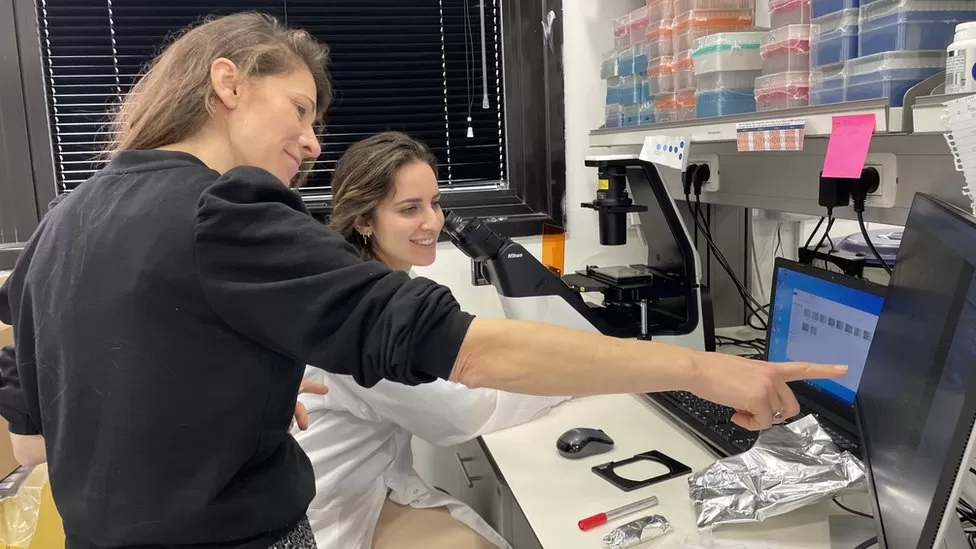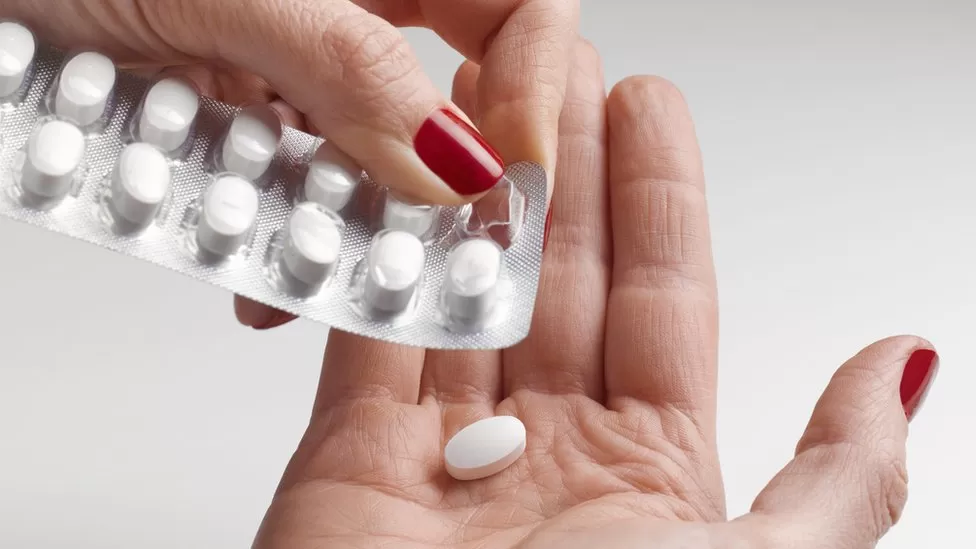
Dr Talia Cohen Solal sits down at a microscope to look closely at human brain cells grown in a petri dish.
“The brain is very subtle, complex and beautiful,” she says.
A neuroscientist, Dr Cohen Solal is the co-founder and chief executive of Israeli health-tech firm Genetika+.
Established in 2018, the company says its technology can best match antidepressants to patients, to avoid unwanted side effects, and make sure that the prescribed drug works as well as possible.
“We can characterise the right medication for each patient the first time,” adds Dr Cohen Solal.
Genetika+ does this by combining the latest in stem cell technology – the growing of specific human cells – with artificial intelligence (AI) software.
From a patient’s blood sample its technicians can generate brain cells. These are then exposed to several antidepressants, and recorded for cellular changes called “biomarkers”.
This information, taken with a patient’s medical history and genetic data, is then processed by an AI system to determine the best drug for a doctor to prescribe and the dosage.
Although the technology is currently still in the development stage, Tel Aviv-based Genetika+ intends to launch commercially next year.

An example of how AI is increasingly being used in the pharmaceutical sector, the company has secured funding from the European Union’s European Research Council and European Innovation Council. Genetika+ is also working with pharmaceutical firms to develop new precision drugs.
The company hopes its work will be in strong demand in the future. There are more than 280 million people globally who suffer from depression, according to the World Health Organization.
And while taking antidepressants certainly won’t be the correct treatment for all, it has long been estimated that almost two thirds of initial prescriptions for depression or anxiety may not work properly.
“We are in the right time to be able to marry the latest computer technology and biological technology advances,” says Dr Cohen Solal.
Dr Heba Sailem says that the potential for AI to transform the global pharmaceutical industry, which generated revenues of $1.4 trillion (£1.1tn) in 2021, is huge.
A senior lecturer of biomedical AI and data science at King’s College London, she says that AI has so far helped with everything “from identifying a potential target gene for treating a certain disease, and discovering a new drug, to improving patient treatment by predicting the best treatment strategy, discovering biomarkers for personalised patient treatment, or even prevention of the disease through early detection of signs for its occurrence”.
Copied from BBC






